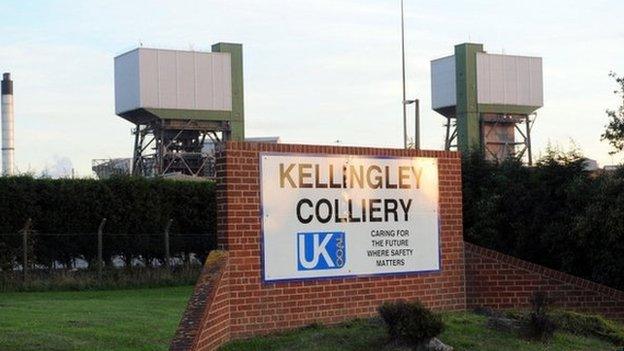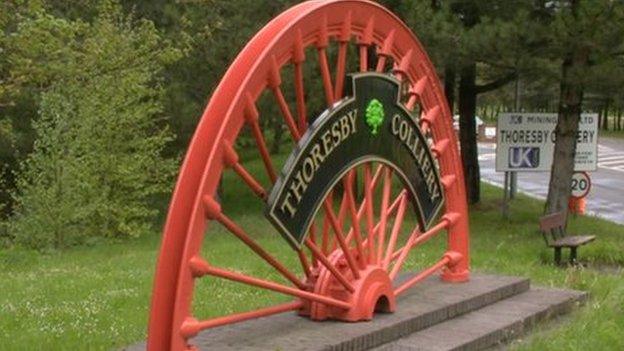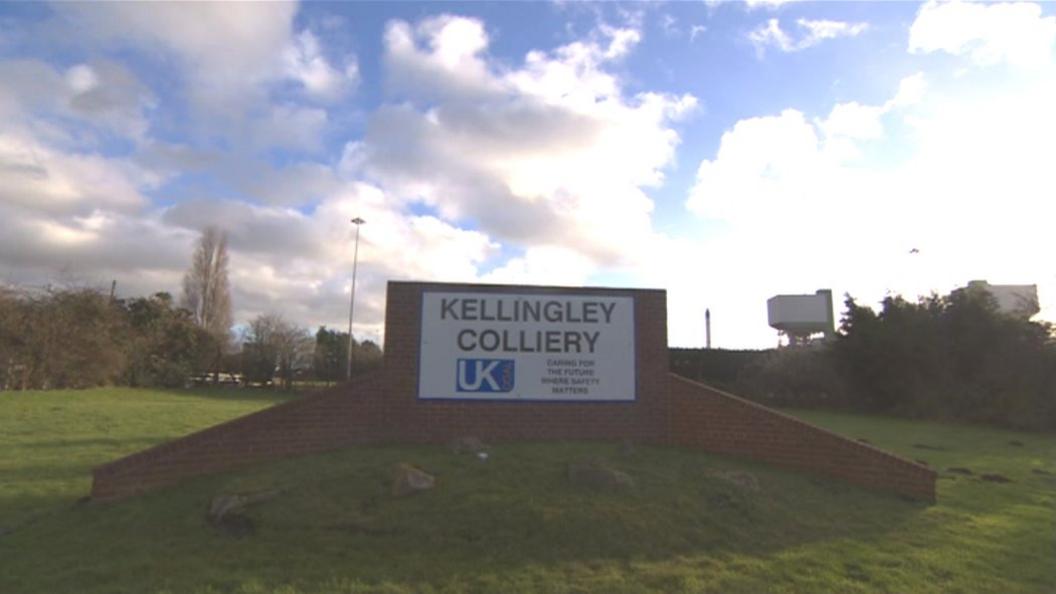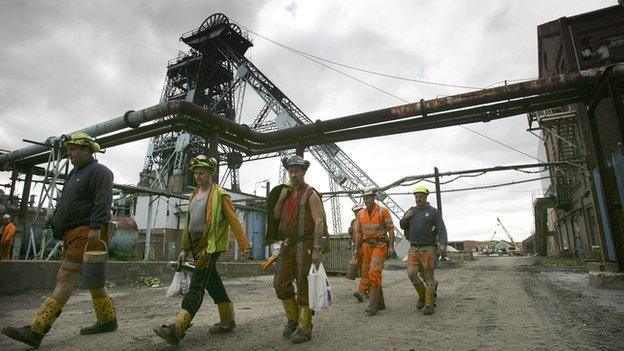Two pits to close after government refuses further aid
- Published

Kellingley colliery, which straddles the border between North and West Yorkshire, began production in April 1965
Two of England's last deep coal mines are to close after they were refused further government funding.
UK Coal wanted to extend the lives of the Kellingley pit in North Yorkshire and Thoresby in north Nottinghamshire by three years.
But business minister Matthew Hancock said the £338m required to do that "does not represent value for money".
Both pits are now set to close by the end of 2015 with the loss of about 1,300 jobs in total.
The decision leaves only one deep mine left in the UK, at Hatfield in South Yorkshire.
Labour's Pontefract and Castleford MP Yvette Cooper said: "I'm bitterly disappointed that the government has decided not to support any state aid for Kellingley at all.
"This means over 600 skilled men and women are set to lose their jobs. It's a massive blow to everyone after all the campaigning and work we've done to try and persuade ministers to help."

Danni Hewson, BBC Look North business correspondent
"It wasn't unexpected" were the words of one Kellingley miner when he received the news this morning. Not unexpected but still a massive blow, not only to the people who still work at the North Yorkshire pit, but to the once massive UK coal industry as a whole.
Make no mistake this is the final bell for deep pits in this country. Kellingley will close by the end of the year, Thoresby in Nottinghamshire earlier than that, Hatfield in South Yorkshire limps on until 2016.
When you look at the sums on paper there doesn't appear to be have been any other sensible choice. Coal prices continue to plummet, developing new seams is costly, the pressure to reduce our carbon footprint grows ever greater.
But will history see this as a false economy? With plans to develop clean coal technology accelerating and concerns about security of supply in an unstable world should more have been done to protect this industry? A question that does and will continue to divide opinion.

Mark Spencer, Conservative MP for Sherwood, said the Thoresby coal mine was due to close this summer.
"I think it's been a fantastic industry for Nottinghamshire," he said.
"It's employed hundreds of thousands of people for decades and it's brought great wealth to Nottinghamshire and clearly brought a lot of conflict as well as it's closed. It's quite a sad occasion, if I'm honest.
"Sadly it's so uneconomic to get this coal out of the ground, given the plummet in global coal prices - it's become a real challenge."
Mr Hancock said committing public sector funding on the scale necessary to extend UK Coal's closure plan by three years was not affordable and did not represent value for money to the taxpayer.
"The £338m requested approximates to a cost of more than £75,000 per UK Coal employee per year over the three-year closure plan," he said.
He added that the government was prepared to provide additional funding to keep the closure plan on track.
UK Coal has asked for an extra £10m so the closures can go ahead this year.
Mr Hancock said: "We are working with the company to determine the amount, timing and form this additional assistance could take."
TUC general secretary Frances O'Grady said: "Immediate help for UK Coal workers and their families is welcome, but this announcement doesn't resolve the long-term problems facing the UK coal industry, in terms of both job and energy security."

Thoresby Colliery is one of three remaining deep coal mines in England
- Published31 January 2015

- Published30 December 2014

- Published16 September 2014

- Published21 August 2014
